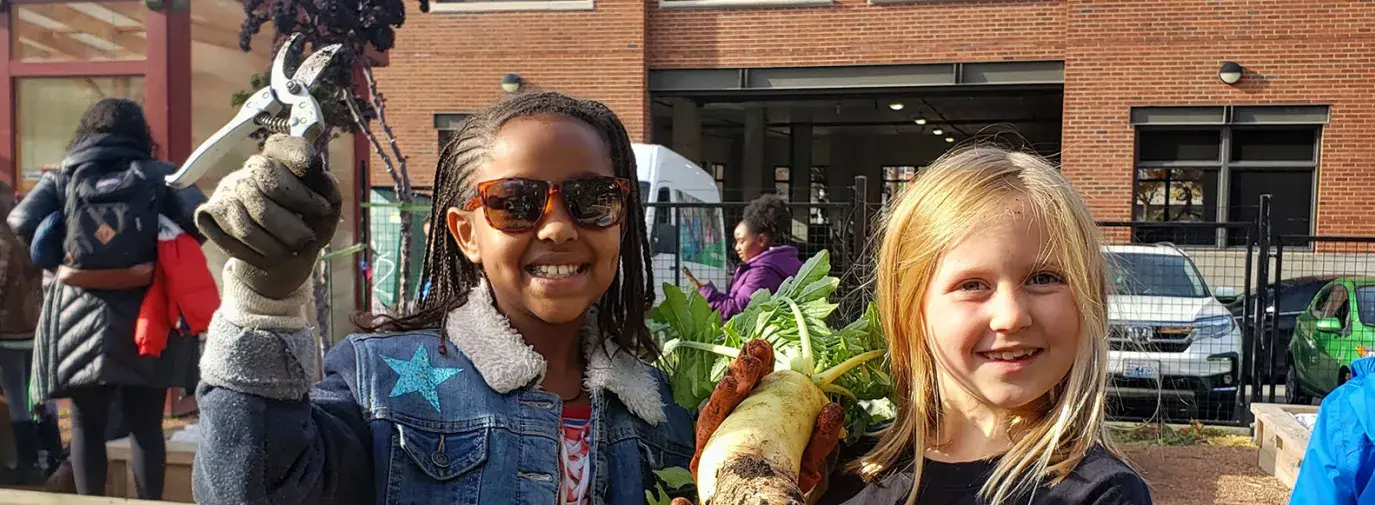
No matter how much or little money you are able to save, if you use a bank, credit union or 401(k) plan, you can be a socially responsible investor.
There are different names for this approach to saving and investing, such as socially responsible investing (SRI); environmental, social, and corporate governance (ESG) investing; impact investing; and sustainable investing. Whatever the name, the key point is that investments have not just financial returns but social and environmental benefits and costs as well. Investing with a broad definition of “returns” will deliver the best outcomes over the long term for the investor, company, communities, and the environment.
What Is Socially Responsible Investing?
There are several strategies for SRI: screening investments in or out based on specific criteria; shareholder action; community development investing to support economically marginalized populations; and divestment when one no longer wants to hold investments because of their impacts on people or the planet.
Probably the best-known example of investor activism was the movement to divest from apartheid South Africa, in which individual and institutional investors withdrew assets from companies doing business in South Africa so as not to support the apartheid regime.
Investors have also screened out, or divested from, industries such as for-profit prisons, the weapons industry, and increasingly, fossil fuels. Academic, faith-based, philanthropic, and other institutions world-wide have screened out or divested from fossil fuels, representing more than $14 trillion. In 2019, corporate accountability organizations and shareholders successfully pressured the big banking industry to stop issuing loans to CoreCivic and GEO Group, the nation’s two largest private prison operators.
Shareholder action, including filing resolutions at corporations, aims to improve companies’ conduct. Shareholder pressure has resulted in progress on issues including increased attention to human and animal rights, CEO compensation, and disclosure of corporate climate impacts, and other issues.
Sustainable Investing Is Under Attack
Over the decades, SRI has become more sophisticated in its approaches and widespread in its successes. Sustainable investing assets have expanded to $17.1 trillion in the US, up 42 percent from $12.0 trillion in 2018. As a result, SRI is now facing its greatest attacks from those who have yet to accept its long-term value for portfolios, people, and the planet.
The Securities & Exchange Commission (SEC) and the Department of Labor (DOL) have joined the Trump administration’s agenda to decrease corporate accountability by weakening the shareholder resolution process.
“This is an anti-democratic strategy. It’s a strike against the ability of shareholders to improve the companies in which they invest, by limiting the resolutions put before corporate management, limiting who can file resolutions, and discouraging fiduciaries from performing all their duties,” said Fran Teplitz, Green America’s executive co-director for business, investing & policy.
Ten thousand Green Americans signed a petition to the SEC in opposition to its rule to weaken the shareholder resolution process. On September 23, 2020, the SEC officially approved restrictions on who can file resolutions and the level of required support for re-filing resolutions. We also sent over 12,000 messages in opposition to the DOL’s two rules against SRI strategies.
Weeks before the 2020 general election, the DOL approved a rule that undermines the ability of 401(k) plans and pensions to include socially responsible investments. The rule that undercuts shareholder action by 401(k) plans is expected before the inauguration in January 2021.
“Recent rules proposed by the Department of Labor and enforced by the U.S. Securities and Exchange Commission constitute an assault on shareholder rights and sustainable investing,” said Leslie Samuelrich, president of Green Century Capital Management{GBN}.“The new SEC rule, pushed by corporations and their front groups, is a straightforward attempt to muzzle the voice of shareholders for the benefit of tone-deaf corporate executives who do not believe in corporate accountability.”
Individual actions
If you own company stocks, make your voice heard by voting your proxies every year. Find information on shareholder resolutions at ProxyPreview.com
Make sure your own investment portfolios are fossil fuel free and invest in initiatives to bring clean energy to scale by working with an SRI-dedicated advisor. You can find them at greenamerica.org/green-businesses-products-service.
Government action
Pressure your local leaders and demand that your city divest from harmful industries like fossil fuels and private prisons. At prisondivest.com, you can find divestment strategy tool-kits for cities, universities, unions, and faith groups.
Community Banks Step Up
Community Development Financial Institutions (CDFIs) are financial organizations that strengthen local communities by offering loans for individual borrowers and small businesses, financial literacy programs, and other crucial services. During the COVID-19 pandemic, CDFIs supplied emergency funds and helped small businesses and nonprofits access Payroll Protection Program (PPP) loans to avert shutting down.
In the spring of 2020, Oakland based CDFI Beneficial State Bank{GBN} worked with the Small Business Administration to provide over 1,300 PPP loans to small businesses and organizations hit by the pandemic, ensuring a paycheck to over 18,000 workers. One of the organizations that received a PPP loan is Green Plate Special, a Seattle nonprofit that teaches environmental science and agricultural skills to young students, largely from families of color and lower-income households. A megabank would have been unlikely to have provided the support the Green Plate kids needed.
As the conventional banking sector is confronted about its role in perpetuating racial and economic injustice, CDFIs are reflecting on their own histories and steps.
“In collaboration with our partners, we have to ask ourselves what an anti-racist bank looks like; how do they measure themselves, hire, and promote, how do they communicate to and serve their communities, and define that criteria,” says Lynn Marie Auzene, chief marketing officer of Beneficial State Bank{GBN}. “I think that’s our calling and opportunity at this time.”
Individual action
Move your money to a better bank. Our Get A Better Bank searchable map is updated with more better banking options. Find one at greenamerica.org/get-a-better-bank.
Government action
Tell your senator to support the HEROES Act and allocate $1 billion to the CDFI Fund.
Corporate action
Green America thanks all of our members who joined our campaign calling on JP Morgan Chase to divest from the fossil fuel industry. In 2020, JP Morgan Chase announced several climate commitments, but it is still the largest financier of fossil fuels in the world. Tell Chase CEO Jamie Dimon to divest today: jamie.dimon@jpmchase.com







